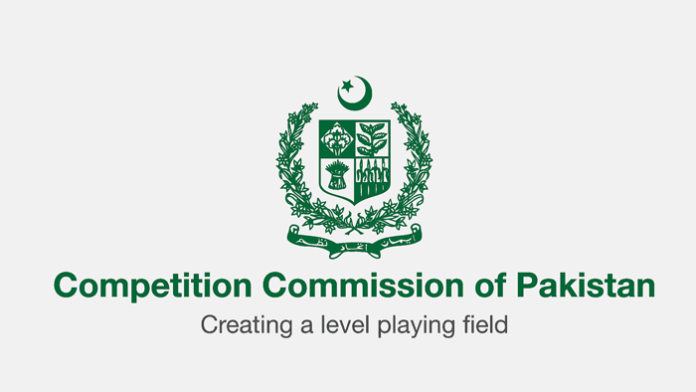ISLAMABAD: The Competition Commission of Pakistan (CCP) has released a comprehensive report on the state of competition in Pakistan’s insurance industry, highlighting systemic challenges and proposing a series of reforms aimed at improving efficiency, consumer welfare, and market fairness.
Globally, the significance of the insurance sector is well established, with the global market estimated to reach a premium volume of $7.4 trillion in 2024. The global average insurance penetration stands at 6.7 percent, while Pakistan lags at just 0.87 percent as of 2022.
In contrast, regional economies such as India and China report insurance penetration levels of around 4 percent of GDP. Insurance density in Pakistan was just $14 (approximately Rs. 2,000) in 2022, significantly lower than India’s $82. For a population exceeding 240 million, only 7.8 million life insurance policies—covering just three percent of the population—were issued in 2022.
In a message accompanying the report, CCP Chairman Dr. Kabir Ahmad Sidhu stressed the importance of reform. “The insurance sector is integral to Pakistan’s economic growth, yet it remains hindered by monopolistic tendencies and protectionist policies entrenched in outdated laws. The report calls for crucial reforms to dismantle barriers to competition and ensure a level playing field that benefits both consumers and the broader economy.”
The insurance sector in Pakistan operates under a fragmented institutional framework. Though it falls under the purview of the Ministry of Commerce, the regulatory authority lies with the Securities and Exchange Commission of Pakistan (SECP), while the appointment of the Federal Insurance Ombudsman falls under the Ministry of Law and Justice. This fragmentation has hindered the sector’s ability to grow and evolve in line with international standards.
The report notes that the nationalization of the life insurance sector in 1972 created a monopoly, which persists to this day. Although the industry was liberalized in 1991, market dynamics have remained largely unchanged, with the State Life Insurance Corporation (SLIC) still commanding a 55 percent share. Its use of the federal government’s sovereign guarantee under Section 35 of the Life Insurance (Nationalization) Order, 1972 gives it an unfair advantage over private insurers.
In the reinsurance segment, the Pakistan Reinsurance Company Limited (PRCL) enjoys preferential treatment under SRO 771(1)/2007, which gives it the exclusive first right of refusal to acquire at least 35 percent of all reinsurance business. In the general insurance domain, National Insurance Company Ltd. (NICL) holds a complete monopoly on insuring public sector firms and their assets, as per Section 166(3) of the Insurance Ordinance, 2000. These forms of regulatory protection limit competition and innovation in the sector.
The CCP also highlighted concerns around restrictions imposed on procuring facultative reinsurance from outside Pakistan. Under Rule 18(1) of the Insurance Rules, 2017, insurers must seek SECP approval before purchasing reinsurance services from abroad, creating a barrier for local insurers to access global markets and competitive rates.
Issues within bancassurance were also flagged. Insurance providers often use banking channels to market their products, but banks reportedly impose internal limits on how much business an insurance firm can conduct through them.
This is tantamount to a refusal to deal and undermines market fairness. Moreover, misleading sales practices and inadequate disclosure of policy terms have left consumers vulnerable, as some staff fail to provide clear information or bury key terms in fine print.
Jurisdictional confusion between the Federal Insurance Ombudsman (FIO) and the Wafaqi Mohtasib adds to consumer challenges. The FIO is authorized to handle complaints against private insurers, while complaints against state-owned insurers such as SLIC and Postal Life fall under the Wafaqi Mohtasib. This dual system creates confusion for policyholders and contributes to delays in complaint resolution.
The report also brings attention to fiscal inefficiencies. Sales tax on insurance premiums is paid by the policyholder, while tax on reinsurance premiums is paid by insurers, effectively taxing the same premium twice.
This tax anomaly increases the cost of doing business. Although some life and health insurance services are exempt, sales tax on reinsurance services is still applied, adding an additional financial burden.
Third-party motor insurance, made mandatory under Section 94 of the Motor Vehicles Act, 1939, is another area of concern. Despite being legally required, only three percent of vehicles on the road are currently insured. This is attributed to poor enforcement, lack of awareness, and the absence of a centralized verification system.
Furthermore, a Federal Insurance Fee of one percent on non-life insurance premiums, introduced in 1989 to promote insurance awareness, has reportedly not been utilized for its intended purpose and instead adds unnecessary cost for insurers.
To address these issues, the CCP has recommended a number of policy reforms. Chief among them is the need to eliminate long-standing preferential treatment for state-owned enterprises. The report suggests amending SRO 771(1)/2007 to fully open the reinsurance market to private players and remove the State Life Corporation’s sovereign guarantee-based advantage.
Opening the public property insurance market to private insurers by amending Section 166 of the Insurance Ordinance would foster competition and drive better outcomes. Similarly, amending Rule 18 of the Insurance Rules would enable insurers to freely choose between domestic and international reinsurers, enhancing market efficiency.
The CCP also called on the State Bank of Pakistan to issue clear guidelines to curb restrictive banking practices in bancassurance, ensure fair disclosures, and protect consumer rights. It recommended resolving the jurisdictional overlap between the FIO and the Wafaqi Mohtasib to streamline complaint redressal.
Finally, the report urges strict enforcement of mandatory motor third-party insurance and the rationalization of taxation at the reinsurance stage to alleviate cost burdens. The withdrawal of the Federal Insurance Fee was also proposed to reduce transaction costs and encourage broader industry growth.




